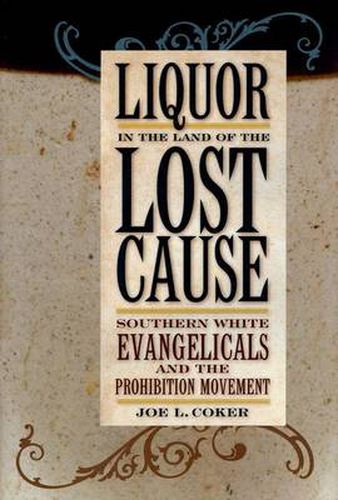Readings Newsletter
Become a Readings Member to make your shopping experience even easier.
Sign in or sign up for free!
You’re not far away from qualifying for FREE standard shipping within Australia
You’ve qualified for FREE standard shipping within Australia
The cart is loading…






The temperance movement first appeared in America in the 1820s as an outgrowth of the same evangelical fervor that fostered a wide range of reform campaigns and benevolence societies. Like many of these movements, temperance was confined primarily to the northeastern United States during the antebellum period. Viewed with suspicion by Southerners because of its close connection to the antislavery movement, prohibition sentiment remained relatively weak in the antebellum South. In the decades following the Civil War, however, southern evangelicals embraced the movement with unprecedented fervor, and by 1915, liquor had been officially banned from the region as a result of their efforts. Liquor in the Land of the Lost Cause examines how southern evangelical men and women transformed a Yankee moral reform movement into an ideology that was compatible with southern culture and values.
$9.00 standard shipping within Australia
FREE standard shipping within Australia for orders over $100.00
Express & International shipping calculated at checkout
The temperance movement first appeared in America in the 1820s as an outgrowth of the same evangelical fervor that fostered a wide range of reform campaigns and benevolence societies. Like many of these movements, temperance was confined primarily to the northeastern United States during the antebellum period. Viewed with suspicion by Southerners because of its close connection to the antislavery movement, prohibition sentiment remained relatively weak in the antebellum South. In the decades following the Civil War, however, southern evangelicals embraced the movement with unprecedented fervor, and by 1915, liquor had been officially banned from the region as a result of their efforts. Liquor in the Land of the Lost Cause examines how southern evangelical men and women transformed a Yankee moral reform movement into an ideology that was compatible with southern culture and values.